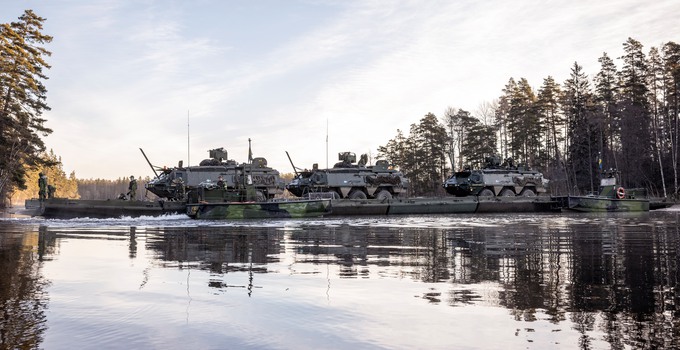
Photo: Antonia Sehlstedt/The Swedish Armed Forces.
War studies
The war studies discipline at the Swedish Defence University focuses on the study of war, warfare, and military power. Research explores how military capability is developed, led, organised, and sustained over time. It also analyses how this capability is applied in operations, war, conflict, and crises.
War studies holds a central position within the university’s broader research fields of defence, crisis management, and security. The research contributes to Sweden's security and plays an important role in developing knowledge about subjects such as military strategy, conflict management and conflict areas, and warfare.
As a social science, war studies examines war and the exercise of military power. Research covers the creation, leadership, organisation, and maintenance of military capability over time, as well as its application in military operations, war, conflict, and crises. The field also includes broader societal and ethical aspects, along with critical perspectives on war and warfare. It has both a general knowledge-generating dimension and a practice-oriented dimension linked to officer education. War studies is unique in Sweden and is only offered at the Swedish Defence University.
The research is characterised by a wide range of theoretical and methodological approaches, incorporating both conventional and critical perspectives. It contributes to the international research frontier in multiple areas and strengthens the integration of research into the university’s educational programmes and courses.
The research is thematically divided into several subfields, including:
- Civil wars and military interventions
- Critical war studies
- Modern warfare
- Future war and warfare
- Gender, peace, and security
- Military organisation and profession
- Modern warfare
Within these subfields, research topics include military strategy, doctrine, information warfare, total defence, the ontology and epistemology of war, nuclear weapons, gender and war, urban warfare, military tactics, rebel groups and networks, conflict management and peacekeeping with military resources, intelligence, military operations, civil-military relations, defence logistics, hybrid threats and hybrid security, the use of military force, military theory, unmanned aerial vehicles (drones), the relationship between war, society, and politics, NATO, and wargaming.
The Department of War Studies hosts several research groups corresponding to these themes, engaging both researchers and doctoral students. In addition to established research groups, smaller specialised research environments focus on areas such as defence logistics and war gaming.
Research groups in war studies
Publications
Staff
Here you can search for employees at the Department of War Studies:
